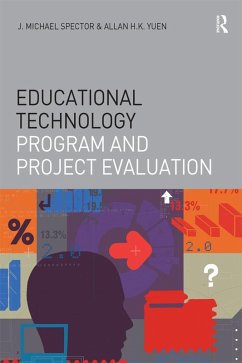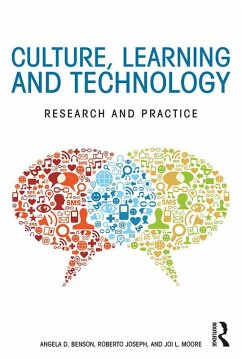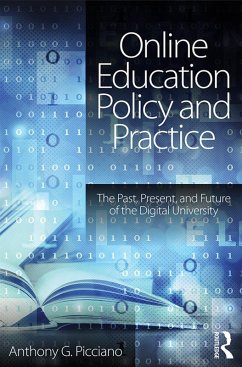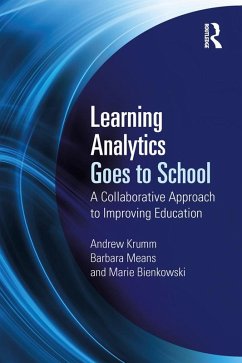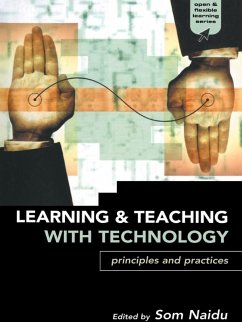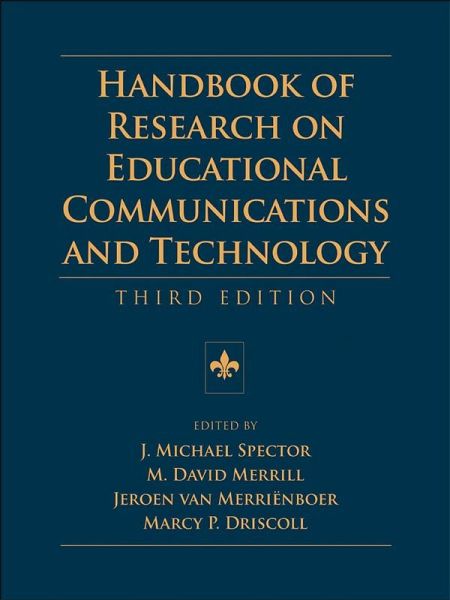
Handbook of Research on Educational Communications and Technology (eBook, ePUB)
A Project of the Association for Educational Communications and Technology
Redaktion: Jonassen, David; Driscoll, Marcy P.; Merrienboer, Jeroen van; Merrill, M. David; Driscoll, Marcy; Spector, Michael J.
Versandkostenfrei!
Sofort per Download lieferbar
133,95 €
inkl. MwSt.
Weitere Ausgaben:

PAYBACK Punkte
67 °P sammeln!
First Published in 2008. Sponsored by the Association of Educational Communication and Technology (AECT), the third edition of this groundbreaking Handbook continues the mission of its predecessors: to provide up-to-date summaries and syntheses of recent research pertinent to the educational uses of information and communication technologies. In addition to updating, this new edition has been expanded from forty-one to fifty-six chapters organized into the following six sections: foundations, strategies, technologies, models, design and development, and methodological issues. In response to fe...
First Published in 2008. Sponsored by the Association of Educational Communication and Technology (AECT), the third edition of this groundbreaking Handbook continues the mission of its predecessors: to provide up-to-date summaries and syntheses of recent research pertinent to the educational uses of information and communication technologies. In addition to updating, this new edition has been expanded from forty-one to fifty-six chapters organized into the following six sections: foundations, strategies, technologies, models, design and development, and methodological issues. In response to feedback from users of the second edition, the following changes have been built into this edition. More Comprehensive topical coverage has been expanded from forty-one to fifty-six chapters and includes many more chapters on technology than in previous editions. Restructured Chapters this edition features shorter chapters with introductory abstracts, keyword definitions, and extended bibliographies. More International more than 20% of the contributing authors and one of the volume editors are non-American. Theoretical Focus Part 1 provides expanded, cross-disciplinary theoretical coverage. Methodological Focus an extended methodological chapter begins with a comprehensive overview of research methods followed by lengthy, separately authored sections devoted to specific methods. Research and Development Focus another extended chapter with lengthy, separately authored sections covers educational technology research and development in different areas of investigation, e.g., experimental methods to determine the effectiveness of instructional designs, technology-based instructional interventions in research, research on instructional design models.
Dieser Download kann aus rechtlichen Gründen nur mit Rechnungsadresse in A, B, BG, CY, CZ, D, DK, EW, E, FIN, F, GR, HR, H, IRL, I, LT, L, LR, M, NL, PL, P, R, S, SLO, SK ausgeliefert werden.




